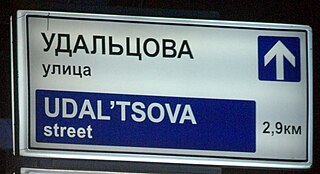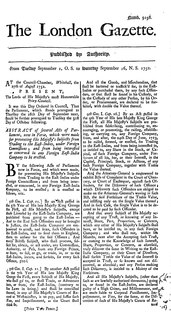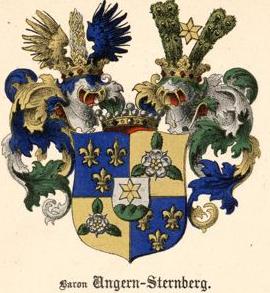
The history of Latvia began around 9000 BC with the end of the last glacial period in northern Europe. Ancient Baltic peoples arrived in the area during the second millennium BC, and four distinct tribal realms in Latvia's territory were identifiable towards the end of the first millennium AD. Latvia's principal river Daugava, was at the head of an important trade route from the Baltic region through Russia into southern Europe and the Middle East that was used by the Vikings and later Nordic and German traders.

The Russian Revolution of 1905 was a wave of mass political and social unrest that spread through vast areas of the Russian Empire, some of which was directed at the government. It included worker strikes, peasant unrest, and military mutinies. It led to Constitutional Reform including the establishment of the State Duma, the multi-party system, and the Russian Constitution of 1906.

CountSergei Yulyevich Witte (Russian: Серге́й Ю́льевич Ви́тте, translit. Sergéj Júl'jevič Vitte, pronounced [ˈvʲitɨ];, also known as Sergius Witte, was a highly influential econometrician, minister, and prime minister in Imperial Russia, one of the key figures in the political arena at the end of 19th and at the beginning of the 20th century.
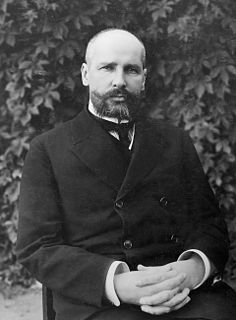
Pyotr Arkadyevich Stolypin was the 3rd Prime Minister of Russia, and Minister of Internal Affairs of the Russian Empire from 1906 to 1911. His tenure was marked by efforts to counter revolutionary groups and by the implementation of noteworthy agrarian reforms. Stolypin was a monarchist and hoped to strengthen the throne. He is considered one of the last major statesmen of Imperial Russia with clearly defined public policies and with the determination to undertake major reforms.
Otto August Strandman was an Estonian politician, who served as Prime Minister (1919) and State Elder of Estonia (1929–1931). He was one of the leaders of the centre-left Estonian Labour Party, that saw its biggest support after the 1919 and 1920 elections. Strandman was a key figure in composing the radical land reform law and the 1920 Constitution. He also served as Minister of Agriculture (1918–1919), Minister of Justice, Minister of Finance (1924), Minister of Foreign Affairs and Minister of War (1919). While he was in the office of Minister of Finance, he stabilized the economy and managed to avoid hyperinflation. Strandman was also the speaker of both the Estonian Provincial Assembly (1917–1918) and Riigikogu (1921). He was a diplomat, serving as an envoy in Warsaw (1927–1929), when he made contacts with Polish politicians, and in Paris (1933–1939). During the Soviet Occupation in 1941, Strandman was ordered to show up to the NKVD headquarters. Already knowing about his fate, he committed suicide in his home in Kadrina.
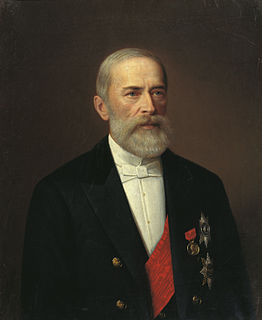
The Peasants' Land Bank was a financial institution of the Russian Empire founded during the reign of Tsar Alexander III, by his Minister of Finance, Nikolai Bunge. He created the Peasants' Land Bank in 1883 to help peasants purchase their own farms. The Peasants' Land Bank was somewhat limited in its effectiveness by a lack of funding; it was also not nearly as generous as the Nobles' Land Bank, which had lower interest rates. Bunge also abolished the Poll Tax, which was only paid for by peasants, in 1886, which helped to reduce the financial burden the peasants faced.

Alexander Theodor von Middendorff was a Baltic German zoologist and explorer.

The Russian nobility originated in the 14th century. In 1914 it consisted of approximately 1,900,000 members.

Gregor von Helmersen was a Baltic German geologist.
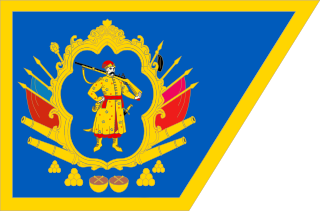
The Cossack Hetmanate, officially known as the Zaporizhian Host, was a Ukrainian Cossack host in Central Ukraine between 1649 and 1764.

Eduard Gustav Freiherr von Toll, often referred to as Baron von Toll, was a Baltic German geologist and Arctic explorer. He was most notable for the leading Russian polar expedition of 1900–1902 of the legendary Sannikov Land. He was known as Eduárd Vasílʹevich Tollʹ in Russia.

Wilhelm Ludwig von Küchelbecker was a Baltic German Romantic poet and Decembrist.

Fyodor Ignatievich Stravinsky, 20 June [O.S. 8 June] 1843, in Golovintsy, Minsk Governorate – 4 December [O.S. 21 November] 1902) was a Russian bass opera singer and actor of Polish descent. He was the father of Igor Stravinsky and the grandfather of Théodore Strawinsky and Soulima Stravinsky.

Nikolai Nikolayevich Pokrovsky was a (nationalist) Russian politician and the last foreign minister of the Russian Empire.
Alexander Vasilyevich Krivoshein (July 19 was a Russian monarchist politician and Minister of Agriculture under Pyotr Stolypin.

The State Duma or Imperial Duma was the Lower House, part of the legislative assembly in the late Russian Empire, which held its meetings in the Taurida Palace in St. Petersburg. It convened four times between 27 April 1906 and the collapse of the Empire in February 1917. The First and the Second Dumas were more democratic and represented a greater number of national types than their successors. The Third Duma was dominated by gentry, landowners and businessmen. The Fourth Duma held five sessions; it existed until 2 March 1917, and was formally dissolved on 6 October 1917.

Ivan Alekseyevich Vyshnegradsky was the Russian Finance minister from 1887–1892.
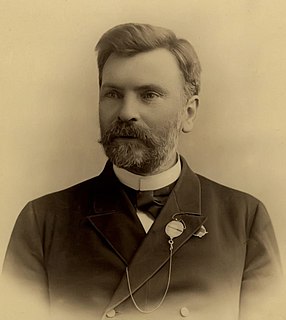
Vladimir Ivanovich Kovalevsky was a Russian statesman, scientist and entrepreneur. He was the author of numerous articles and works on agricultural themes. From 1892 to 1900, he was the director of the Commerce and Manufacturing Department of the Ministry of Finance of the Russian Empire, and one of the fathers of the concept of Russian protectionism. From 1900 to 1902, he was the Deputy Minister of Finance. From 1906 to 1916, he was the chairman of the Russian Technical Society. Kovalevsky was one of the creators of the Saint Petersburg State Polytechnical University and the Institute of Plant Industry in Leningrad.
The Central Agricultural Zone is a traditional region of Russia. Historically it was the centre of agriculture and colonisation in the seventeenth and eighteenth centuries, and was the most densely populated area of the Russian Empire. It was also the poorest. Before the emancipation of serfs, it was home to most of the Russian serf population, and later it was also the centre of the communal system, which contributed to the areas relative poverty compared to the rest of Russia.


